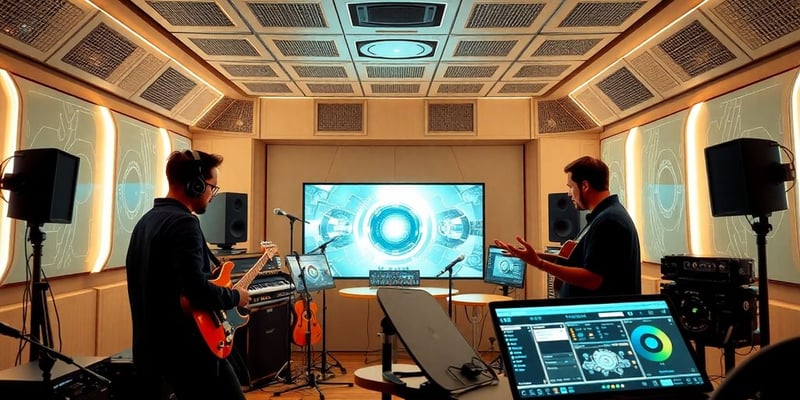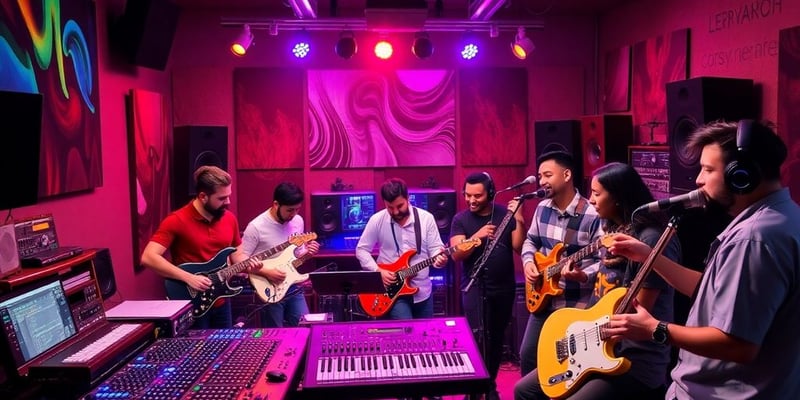
Exploring the Future of Singers AI Voice: How Technology is Transforming Music Creation in 2025
Save 15%

Imagine a world where the voice behind your favorite song isn't human but sounds just as incredible. That's what AI vocalists are bringing to the music scene in 2025. This isn't just a passing trend; it's a shift in how music is made and enjoyed. From solo artists to big production teams, AI tools are opening doors to new creative possibilities. It's a game-changer, making music more accessible and innovative than ever before.
Key Takeaways
- AI vocalists are reshaping the music industry with new creative opportunities.
- They offer cost-effective solutions for music production without compromising quality.
- AI technology is blending music genres, leading to fresh and unique sounds.
- Ethical issues like copyright and authenticity remain hot topics.
- Live performances are evolving with the integration of AI vocals.
The Rise of AI Vocalists in Modern Music
Understanding AI Vocal Technology
AI vocal technology is not just another high-tech gadget; it's changing the music scene in ways we couldn't have imagined a few years ago. These systems can mimic human voices so well that sometimes you can't even tell the difference. They use complex algorithms to learn and replicate vocal patterns, making them super versatile. What's really amazing is how these AI vocalists can sing in different languages and styles, adapting to whatever the music demands. It's like having a multilingual, multi-genre singer available at the click of a button.
How AI is Transforming Vocal Performances
AI is really shaking things up in the music world. Traditional vocal performances are getting a tech makeover. With AI, producers can tweak and perfect vocals in ways that weren't possible before. Imagine a singer hitting every note perfectly, every single time. That's what AI brings to the table. Plus, AI can experiment with vocal effects that human singers might struggle with, adding layers and depth to performances.
- Seamless pitch correction
- Infinite vocal range possibilities
- Unique vocal effects and harmonies
The Role of AI in Music Innovation
AI isn't just a tool—it's a partner in creativity. Musicians and producers are using AI to push boundaries and explore new musical landscapes. It's like having a collaborator who's always ready to try something new. AI's expected role is to unite artists on shared technological platforms, fostering cross-pollination that could lead to the emergence of new genres and innovative musical hybrids.
AI vocalists are not just about replacing human voices; they're about expanding the horizons of what's possible in music. They offer a new palette of sounds and possibilities, helping artists to dream bigger and bolder.
In 2025, artists can leverage AI to enhance their music creation process, allowing them to modify their vocals to align with the style of other artists they wish to collaborate with. This technology facilitates more tailored pitches and creative collaborations.
How AI Vocalists are Shaping the Future of Music Production
AI-Driven Creativity in Songwriting
AI vocalists are changing the game in songwriting. Imagine having a digital co-writer who can come up with lyrics and melodies on the spot. It's like having another creative brain in the studio. AI can analyze what's trending and suggest ideas that match current musical tastes, helping artists stay fresh. Some platforms even let you input a theme or emotion, and the AI drafts a song around it. It's like having a collaborator who's always ready to brainstorm.
Enhancing Music Production with AI Vocals
AI vocals add a new depth to music production. Producers can play with different vocal styles without needing a human singer for each version. This flexibility gives more room for creativity and experimentation. You can try out a pop vibe, then switch to something more classical—all in the same session. AI vocals can also be adjusted to match the music's emotional tone, making it easier to create a cohesive sound.
The Impact of AI on Music Genres
AI is mixing up music genres in unexpected ways. By analyzing tons of data, AI can blend elements from rock, jazz, hip-hop, and more, creating unique sounds that might not have been imagined otherwise. This genre-blending is opening up new paths for artists to explore and is leading to the creation of fresh, innovative music styles. The possibilities are endless, and it's exciting to think about what might come next.
AI vocalists are not just a passing trend. They're here to stay, and they’re making waves in the music industry. Whether you're an artist looking to innovate or a producer seeking efficiency, AI offers something for everyone. The future of music production is looking bright, with AI vocalists leading the charge.
The Technology Behind AI Vocalists
Machine Learning in Vocal Synthesis
Machine learning is the magic behind AI vocalists. It lets computers learn how to imitate human voices by crunching massive amounts of data. These systems dive deep into hours of recorded singing and speech, picking up on the unique patterns and quirks that make each voice special. With this tech, AI can create vocals that sound almost human. It's not just about getting the notes right; it's about capturing the emotion and style that make a voice stand out.
The Role of Neural Networks in AI Vocals
Think of neural networks as the brain of AI vocalists. They process information in layers, refining the output bit by bit. This tech helps AI get better over time, improving its ability to mimic human vocal traits. Neural networks can handle tricky stuff like pitch changes and expressive dynamics, making AI vocals feel more authentic and engaging.
Advancements in AI Audio Processing
AI audio processing has really taken off. Nowadays, AI can streamline music production by syncing vocals, tuning takes, and even recreating the sound of famous singers. This progress allows musicians and producers to play around with new sounds and techniques without the usual limits of traditional vocal recording. AI audio tools are always getting better, offering more precision and creativity in the studio.
As AI continues to weave its way into the fabric of music, we're seeing a shift not just in how songs are produced, but in who gets to create them. With AI vocalists, the barriers to entry are lower than ever, allowing a more diverse range of voices to be heard. It's an exciting time for music lovers and creators alike.
Exploring the Benefits of AI Vocalists for Artists and Producers
Cost-Effective Music Production Solutions
In today's music scene, budgets can be tight, and every penny counts. AI vocalists are stepping in as a game-changer, offering a more affordable way to produce music. Instead of shelling out big bucks for studio time or hiring session singers, producers can now use AI to experiment with different vocal styles without the hefty price tag. This tech lets you try out ideas quickly and easily, which is a huge win for indie artists working with limited funds.
Expanding Creative Possibilities with AI
AI vocalists are like a gateway to new creative worlds. Artists aren't stuck with their natural vocal range or style anymore. Want to mix some opera into your rock song or add a jazz twist to your pop hit? AI can help make that happen. This tech is all about breaking down creative barriers, letting artists explore genres and styles they might never have considered before. It's like having a whole new set of tools to play with, inspiring fresh ideas and helping you get past those pesky creative blocks.
AI Vocalists as Collaborative Tools
Collaboration is a big part of making music, and AI vocalists are quickly becoming a valuable partner in the process. They can team up with human musicians to provide harmonies or backing vocals that might be tough to pull off otherwise. This isn't about replacing human talent—it's about enhancing it. AI can offer new ideas or directions for a song, acting like a creative partner who never gets tired or runs out of inspiration.
AI is revolutionizing music production by enabling musicians to focus on their creativity while handling technical aspects. This shift enhances the creative process and opens new avenues for artistic expression. AI is revolutionizing music production
The Global Impact of AI Vocalists on the Music Industry
AI Vocalists in Different Cultural Contexts
AI vocalists are making waves across the globe, and it's fascinating to see how different cultures are embracing this technology. In Japan, for example, virtual idols like Hatsune Miku have been popular for years, and AI vocalists are a natural evolution of that trend. Meanwhile, in Western countries, AI singers are being used to revive the voices of legendary artists, giving fans a chance to hear "new" music from their favorites. This blending of technology and culture is creating a unique musical landscape that's never been seen before.
Economic Implications for the Music Industry
Let's talk money. AI vocalists are changing the economics of music production. With AI, the cost of producing a song can drop significantly because you don't need to pay a human singer. This means more people can afford to create music, which could lead to a surge in new artists and fresh sounds. On the flip side, it might also mean fewer jobs for traditional vocalists. It's a double-edged sword, and the industry will need to adapt.
AI's Role in Global Music Trends
AI is not just changing how music is made; it's also influencing what kind of music becomes popular. Algorithms can analyze trends and predict what listeners want to hear, potentially shaping the global music scene. This could lead to a more homogenized sound worldwide, or it could help niche genres find their audience. It's a bit of a wild card, but one thing's for sure: AI is here to stay in the music world.
Addressing Ethical and Copyright Concerns

Balancing Human and AI Creativity
AI in music is like a double-edged sword. It can churn out catchy tunes and clever lyrics, but there's something about a human touch that AI just can't replicate. The emotional depth and unique perspective of a human artist are irreplaceable. Musicians are finding ways to blend AI's capabilities with their own creativity. This balance is crucial to ensure that AI is a tool, not a replacement, for human creativity. The idea is to let AI complement the artist, not overshadow them.
Ensuring Authenticity in AI-Generated Music
Authenticity in music is what connects fans to artists. When AI steps in, it can feel a bit impersonal. Artists need to use AI in a way that enhances their style, not dilutes it. This might mean using AI to try out new sounds while staying true to their artistic identity. The goal is to keep that personal connection alive, even when AI is part of the process.
As AI vocal plugins continue to evolve, the music industry must adapt, finding ways to incorporate new technology without losing the essence of what makes music personal and relatable.
The Ongoing Debate: AI vs. Human Talent
The rise of AI in music brings up tough questions about copyright and ownership. Who owns a song created by an algorithm? Is it the programmer, the user, or the AI itself? These are tricky questions, and the music industry is still working on answers. Copyright laws weren't designed with AI in mind, leaving a lot of gray areas. There's a real worry that AI might "borrow" from existing songs without permission, leading to legal battles. Here are some key considerations:
- Determining legal ownership of AI-generated content
- Protecting original creators' rights
- Navigating international copyright laws
As the music industry shifts its focus on AI ethics from theoretical discussions to practical business frameworks, these debates are becoming more vital than ever.
The Future of AI Vocal Plugins in Music

Predictions for AI in Music by 2030
Looking towards 2030, AI vocal plugins are expected to become a staple in music production. These tools are likely to advance, making AI-generated voices nearly indistinguishable from human ones. Imagine virtual singers performing alongside real artists, creating unique musical experiences. AI might also become a key player in music education, offering aspiring musicians instant feedback to refine their skills.
Emerging Trends in AI Vocal Technology
In recent times, several trends have emerged in AI vocal plugins. A major one is Vocal AI streamlining music production by aligning vocals, tuning, and even imitating famous singers' voices. This trend is making quality music production more accessible to independent artists, cutting down the need for expensive studio time. Additionally, AI is stepping into live performances, blending seamlessly with traditional concert setups to enhance the audience's experience.
The Ongoing Debate: AI vs. Human Talent
The rise of AI in music production sparks an ongoing debate about balancing AI capabilities with human creativity. While AI opens up new creative avenues, concerns linger over the potential loss of the human touch in music. This debate is set to continue as AI technology evolves, focusing on maintaining authenticity and emotional depth in AI-generated music. Some argue AI should be seen as a tool to enhance human creativity, not replace it. As AI becomes more common, finding the right balance between technology and artistry will be key.
The rise of AI vocal plugins is reshaping music production, making it more accessible and innovative. As technology evolves, the possibilities for creativity and collaboration are endless.
Unlock Your Creativity with AI Vocalist: The Future of Music Production in 2025
AI Vocalists as Tools for Innovation
In 2025, AI vocalists are more than just tools—they're partners in musical exploration. These digital singers can mimic a wide range of vocal styles and languages, allowing artists to experiment like never before. Imagine crafting a track with operatic highs and gritty rock lows without needing a different singer for each part. AI makes it possible. This flexibility is opening doors for musicians to push the boundaries of genre and style, creating music that's fresh and unexpected.
Transforming Live Performances with AI
Live shows are getting an AI upgrade, too. With AI vocalists, artists can enhance their performances with layers of sound that were previously impossible to achieve live. Whether it's adding harmonies or creating complex vocal effects, AI is making concerts more dynamic and engaging. Fans are treated to a richer audio experience, and performers can focus on their stage presence, knowing their AI partners have the vocals covered.
The Role of AI in Music Education
AI isn't just about creating music; it's also a powerful educational tool. Aspiring singers can use AI to learn and practice with precision. These tools provide instant feedback on pitch, tone, and style, helping learners improve faster than traditional methods. For educators, AI offers a way to demonstrate complex vocal techniques in a way that's easily understandable. It's like having a personal vocal coach available at any time.
AI vocalists are not just reshaping how music is made; they're redefining who can create it. By breaking down barriers to entry, AI is democratizing music production, making it accessible to anyone with a passion for sound. As we move further into 2025, the possibilities for innovation and creativity in music are expanding, driven by the power of AI vocalists.
For those interested in how AI vocal plugins are transforming music production, these tools are not just enhancing creativity but also streamlining the entire music creation process.
Wrapping It Up
So, here we are, looking at a future where AI vocalists might just be the next big thing in music. It's kind of wild to think about how far we've come, right? From the days of vinyl records to now having virtual singers that can belt out tunes just like your favorite artist. Sure, there are some bumps in the road, like figuring out how to keep the human touch in music, but that's part of the journey. As we move towards 2025, it's clear that AI is going to play a big role in how music is made and enjoyed. Whether you're a musician or just someone who loves a good beat, it's an exciting time to be part of the music world. Who knows what amazing sounds we'll be jamming to in the next few years?
Frequently Asked Questions
What are AI vocalists?
AI vocalists are computer programs that can sing and perform songs like human singers. They use technology to create realistic singing voices.
How do AI vocalists change music production?
AI vocalists make it easier and cheaper to produce music. They help songwriters come up with new ideas and allow producers to create songs without needing a human singer.
Can AI vocalists perform live?
Yes, AI vocalists can be used in live concerts. They can sing along with human performers or even perform on their own with the help of special technology.
Are there any problems with using AI vocalists?
Some challenges include copyright issues and making sure the music still feels real and authentic. People are also concerned about how much control humans have over the music.
Do AI vocalists work in all music styles?
AI vocalists can adapt to various music styles, making them versatile for different genres and performances.
What are AI vocal plugins?
AI vocal plugins are computer tools that let you create singing voices using technology. They help make music without needing a human singer.









